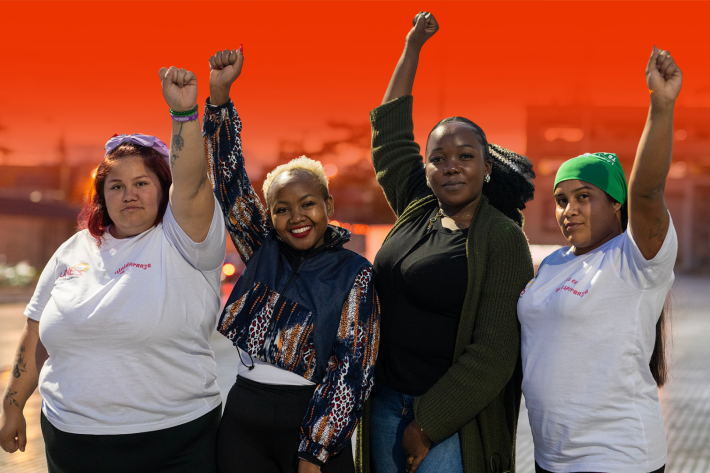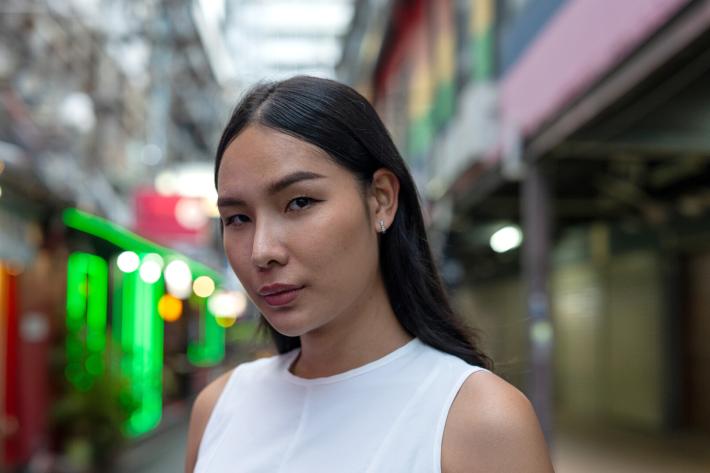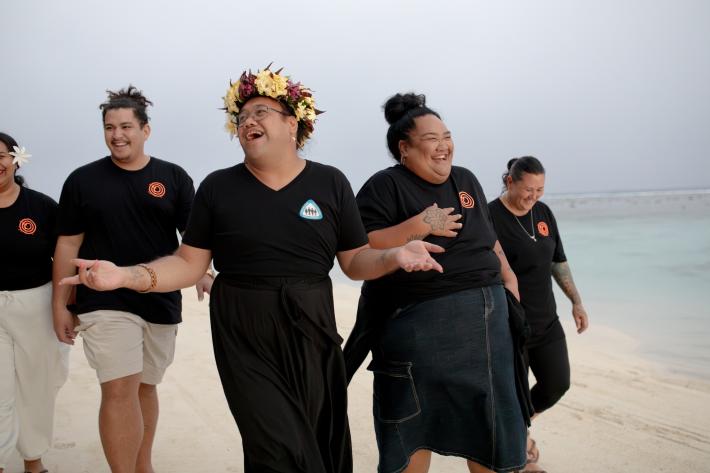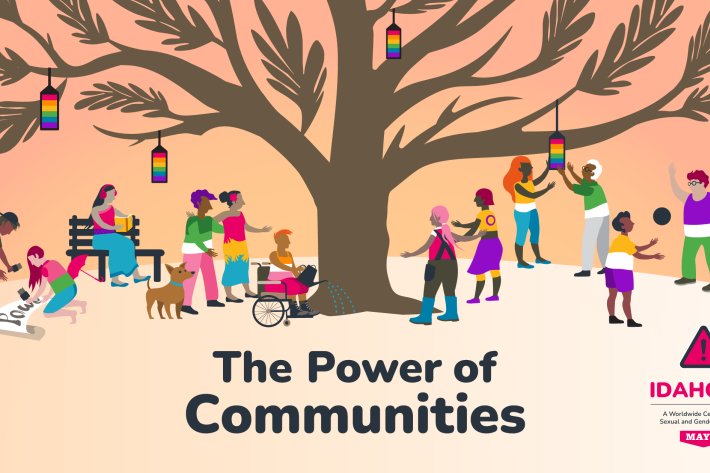
Spotlight
A selection of news from across the Federation
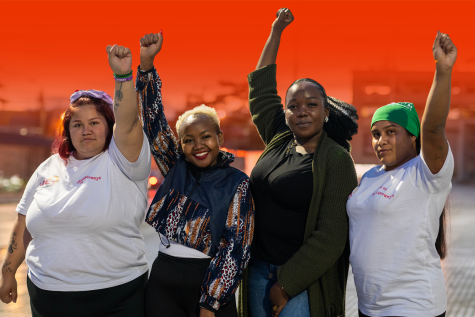
We Made It a Charter: IPPF’s Declaration of Values
Proud, bold, and united: we are values-led.
Filter our news by:

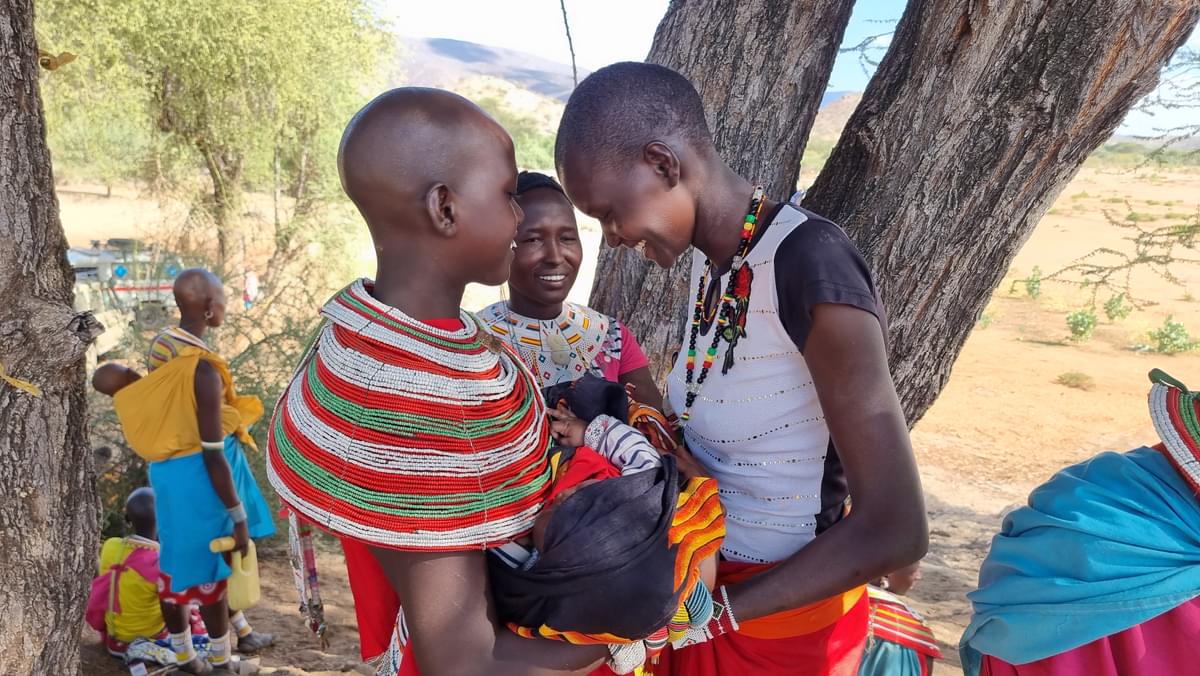
| 30 September 2024
EmpowHER: IPPF Announces New Global Initiative to Empower Women, Girls, and Marginalized Communities
The International Planned Parenthood Federation (IPPF) has launched the CAD48 million "EmpowHER" project in partnership with Global Affairs Canada. The initiative aims to improve sexual and reproductive health and rights (SRHR) for marginalised women, girls, and underserved communities across at least 11 countries. EmpowHER will enhance access to sexual and reproductive health (SRH) care, deliver comprehensive sexuality education, and combat growing threats to SRHR through policy reform and advocacy. This partnership aligns with Canada’s commitment to gender equality and empowering young people to make informed choices about their well-being. Ensuring Inclusive SRHR Delivery for Women, Girls and Marginalise Communities (EmpowHER), is a large-scale initiative that will strengthen access to SRHR for the most marginalised and underserved groups, particularly women and girls. It will support millions of women, girls, and vulnerable communities in Burkina Faso, Democratic Republic of Congo, Ghana, Guinea, Guinea-Bissau, Kenya, Mauritania, Sudan, Zambia, Uganda, Togo, Colombia, Ecuador and Pakistan. Through an intersectional, human rights-based feminist approach, EmpowHER will increase access to much needed rights-based SRH care, including access to person-centred safe and legal abortion care. It will deliver critical comprehensive sexuality education (CSE) to empower young people to act on their sexual and reproductive rights (SRR) by expanding their access to quality, rights-based, and gender-sensitive CSE. Furthermore, this initiative will also counteract the growing threats to women’s and girls' sexual and reproductive health rights, by providing urgent support to improve policies and strengthen the capacity of movements and coalitions. Dr. Alvaro Bermejo, Director-General of IPPF, emphasised the critical need to protect and expand access to SRHR. “This new project will continue our mission of empowering women and girls, particularly in Sub Saharan Africa, to make informed decisions about their bodies. We will not only increase access to much needed SRHR services including safe and legal abortion but will also deliver CSE to young people and tackle the rollback of SRHR rights.” “We’re grateful to the Canadian Government for their support and continued partnership.” The funding, unveiled during the United Nations General Assembly (UNGA), is part of Canada’s 10-Year Commitment to Global Health and Rights and aligns with its Feminist International Assistance Policy. Canada is committed to securing a more gender-equal world in which young people are empowered to exercise their rights and make free and informed decisions about their sexuality and well-being. "By supporting the EmpowHER initiative, Canada is taking another step towards achieving gender equality and empowering women and girls, in all their diversity, worldwide. This project will not only improve access to vital sexual and reproductive health services, but also ensure that the most marginalized communities can exercise their rights and make informed choices about their health and future. Together, we will strengthen partnerships that champion these rights and protect the progress we've made", said the Honourable Ahmed Hussen, Minister of International Development, Canada.

| 23 September 2024
Major New Health Programme to Expand Sexual and Reproductive Health Services in East and Southern Africa
Nairobi, 23 September 2024 – A groundbreaking £75.125 million project has been announced by the International Planned Parenthood Federation (IPPF) and its partners, the International Rescue Committee (IRC), Options, Ipas, and Johns Hopkins University Centre for Communication Programmes, to transform sexual and reproductive health services across East and Southern Africa. This large-scale initiative will benefit seven countries, supporting millions of women, girls, and vulnerable communities in Burundi, Ethiopia, Madagascar, Somalia, South Sudan, Sudan, and Zambia. This programme, known as Women’s Integrated Sexual Health 2 (WISH 2) Lot 2, is funded by the UK Foreign, Commonwealth and Development Office (FCDO). As part of FCDO WISH Dividend, it builds on the successes of FCDO’s £272 million Women’s Integrated Sexual Health (2018-2024) programme, which spanned 27 countries across Africa and Asia. Over its lifespan, the first WISH programme supported over an estimated 16.9 million women and girls, helping them gain access to critical SRHR services. FCDO’s continued partnership with IPPF for this next phase of WISH was unveiled by FCDO's Chris Carter, on behalf of the UK Minister for Africa, Lord Collins, during the United Nations General Assembly (UNGA) side event, “SRHR: Securing reproductive choice for the next generation.” Announcing FCDO’s partnerships with IPPF, MSI Reproductive Choices and the Children's Investment Fund Foundation, Chris Carter noted the new programme will play a critical role in increasing women's voice, choice and control across 13 countries in Africa.” With the goal of delivering over seven million ‘couple years protection,’ the programme will address critical healthcare gaps, promote reproductive choice, and tackle harmful social norms. It will also provide urgent support to improve policies, strengthen health systems, and safeguard the reproductive rights of women and girls, especially in areas affected by conflict and displacement. At the heart of this initiative is a focus on reaching the most marginalised groups, including young women and girls under 20, those living in poverty, people with disabilities, and communities in conflict zones. Importantly, WISH2 will also work to improve access to safe abortion care and counteract the growing threats to women’s and girls' sexual and reproductive health rights. IPPF Director General Dr Alvaro Bermejo emphasised the critical need to protect and expand access to SRHR. “WISH2 will continue our mission of empowering women and girls across Africa to unlock their full potential. We will not only tackle the rollback of SRHR rights but also strengthen disability inclusion while delivering sustainable healthcare solutions,” said Dr Bermejo. “We’re grateful to the UK Government for their unwavering support in this important work.” Elshafie Mohamed Ali, Executive Director of Sudan Family Planning Association (SFPA) said “WISH2 is essential given Sudan’s current circumstances, particularly the ongoing conflict since April 15, 2023. The programme addresses the growing need for sexual and reproductive health services, offering crucial support to vulnerable communities amidst increasing instability and humanitarian challenges.” Chris Carter, Deputy Director, Head of Human Development Department, highlighted the impact of this new initiative: “Access to sexual and reproductive health services saves lives, empowers women and girls, and supports education, transforming lives and entire livelihoods. This project will amplify women’s voice, choice, and control across Africa, and we are proud to partner with IPPF and African organizations in this critical mission.” For media enquiries, please contact media@ippf.org
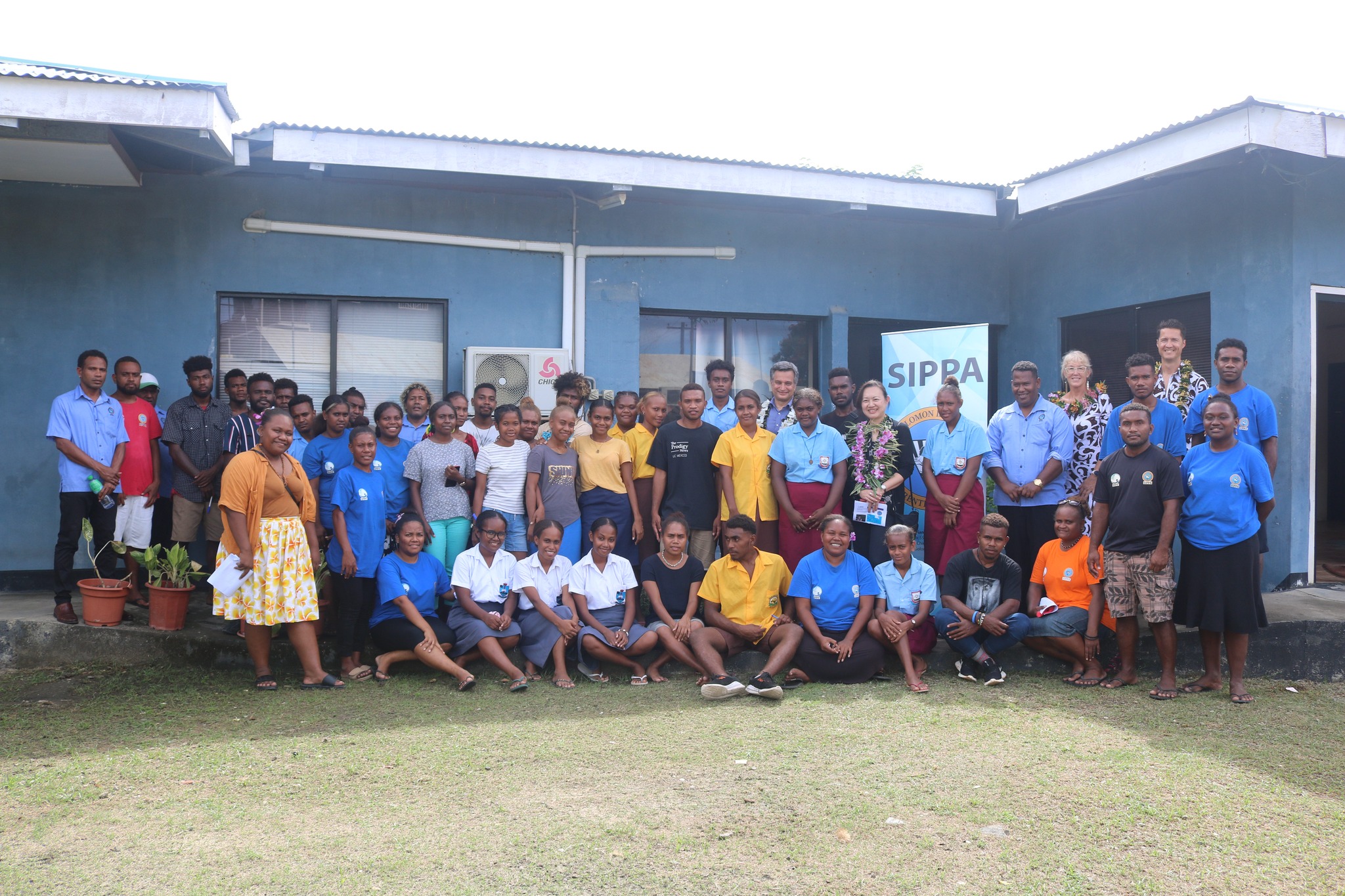
| 28 March 2023
IPPF’s Director General Visits Solomon Islands and Australia
The Director General of the International Planned Parenthood Federation (IPPF), Dr Alvaro Bermejo, is in Australia this week for high level meetings with Australian Government Ministers and the Australian Department of Foreign Affairs and Trade (DFAT). He is joined by Ms Tomoka Fukuda, Regional Director of IPPF’s East and Southeast Asia and Oceania Region (ESEAOR) and Ms Phoebe Ryan, IPPF’s Chief of the Australia and New Zealand Office. In Australia, Dr Bermejo has been privileged to meet with Australia’s Minister for International Development and the Pacific, the Hon Pat Conroy. Together, they discussed how Australia can play a leadership role in advancing sexual and reproductive health and rights through Australia’s international development cooperation.

| 10 November 2022
Sexual and reproductive justice to deliver the Nairobi commitments
Today, the International Planned Parenthood Federation (IPPF) is helping launch the second report of the High-Level Commission on the Nairobi Summit, also known as the International Conference on Population and Development 25 (ICPD 25). The Commission is an independent advisory board comprised of 26 members from different sectors tasked with monitoring progress on the ICPD Programme of Action and Nairobi Summit Commitments. The programme of action contains commitments from 179 countries to put the rights, needs and aspirations of individual human beings at the centre of sustainable development, part of which includes achieving universal access to sexual and reproductive health for all. The report - ‘Sexual and reproductive justice as the vehicle to deliver the Nairobi Summit commitments’ - highlights sexual and reproductive justice as the key to the realization of the Nairobi Summit commitments. Sexual and reproductive justice is a universal concept. It includes the right to have or not have children, the right to parent one’s children in safe and sustainable environments, and the right to sexual autonomy and gender freedom. Monitoring the implementation of life-saving sexual and reproductive health and gender-responsive services is crucial to ensure accountability and human rights for all. However, while some progress has been made, many barriers persist, and millions worldwide still do not realize their sexual and reproductive rights. Progress on Nairobi Summit Commitments: Numerous country commitments made at the Nairobi Summit align with a sexual and reproductive justice framework. They pay explicit attention to marginalized and vulnerable populations, notably people with disabilities, refugees, migrants (particularly migrant women), young people and older persons. Indigenous peoples, people of African descent and other ethnic minority groups have received less attention. A slew of new reproductive rights legislation followed the Nairobi Summit, suggesting a basis for a sexual and reproductive justice framework. The high number of commitments prioritizing sexual and gender-based violence offers a powerful entry point for promoting sexual and reproductive justice. On the Summit’s Global Commitments, some improvement is evident in meeting unmet need for family planning. But no region has registered positive movement towards zero preventable maternal deaths. Greater access to family planning has yet to translate into better maternal health outcomes. There is some progress in offering comprehensive and age-responsive information and education on sexuality and reproduction and adolescent-friendly, comprehensive, quality and timely services. Certain regions and countries have advanced in providing timely, quality and disaggregated data. More must be done, but this creates opportunities for ensuring that data capture intersecting challenges and are used to inform laws, policies and programmes. Domestic and international finance is critical to sexual and reproductive justice but persistently lags commitments. More than 4 billion people globally will lack access to at least one key sexual and reproductive health service during their lives Dr Alvaro Bermejo, Director-General for the International Planned Parenthood Federation, said:

| 02 June 2021
Aid cuts could lead to more than two million unintended pregnancies before the end of the year in continued blow for women and girls
New data from the International Planned Parenthood Federation (IPPF) has revealed that unless alternative funding is sourced, the UK government's £131 million ($186 million) cut to UNFPA supplies – the largest provider of donated contraception for some of the world's poorest communities - will lead to an estimated additional: 2.4 million unintended pregnancies 685,000 unsafe abortions and 7,447 maternal deaths across IPPF's services alone before the end of 2021.[i] IPPF uses donations of contraception from UNFPA supplies, including the pill, injectables, implants, IUDs, and condoms, to deliver much-needed sexual and reproductive healthcare across 45[ii] countries via its Member Associations (M.A.s). For 2021, IPPF has received just $1.5 million worth of contraception out of the $14 million requested for the year. It is growing increasingly concerned that the remaining $12.5 million worth of contraception will no longer be available, meaning Member Associations will be dangerously close to running out of stock by the end of 2021, with shortages becoming increasingly acute for 2022 unless replacement funding can be found. The $14 million equates to 40% of IPPF's overall budget of $35 million for contraceptive supplies across the entire Federation. Some IPPF Member Associations have reported that they are 100% reliant[iii] on the millions of dollars worth of contraception they receive from UNFPA Supplies, including M.A.s in Nepal, Cameroon, Cote d'Ivoire, Mozambique, Yemen, and South Sudan. For others, donations from UNFPA form a significant part of their budgets, such as M.A.s in Ethiopia, Ghana, Mali, Malawi, Nigeria, and Sudan. Furthermore, with the gap between procurement of contraception and supply often taking six months or more, and with UNFPA Supplies also the primary provider for Ministries of Health in the countries that IPPF and UNFPA work with, other avenues for Member Associations to receive contraception and commodities are also severely restricted. The crushing figures come on top of already devastating news for IPPF, the world's largest sexual and reproductive healthcare organization, which saw cuts of around £72 million, approximately $100 million at the end of April. These cuts include the dismantling of the U.K.'s hugely successful WISH (Women's Integrated Sexual Health) programme just three years into its creation, as well as the closure of IPPF's ACCESS (Approaches in Complex and Challenging Environments For Sustainable Sexual and Reproductive Health) programme. Both initiatives help deliver life-saving contraception and sexual and reproductive healthcare for some of the most marginalized women and girls, including those living in poverty, refugees, those living with HIV, and survivors of sexual and gender-based violence. In some of the 45 countries, IPPF works with UNFPA Supplies alongside the WISH and ACCESS programmes. Dr Alvaro Bermejo, IPPF’s Director-General, said: "Millions of women[iv] in the world's poorest countries want to access contraception but can't, and this number will only increase following the U.K government's decision to axe hundreds of millions of promised pounds from the expert organizations that provide sexual and reproductive healthcare worldwide. "Not only are the government dismantling well-established healthcare clinics and teams, but they are also stripping the remaining ones of valuable resources with little to no notice. Soon, healthcare teams will be left with nothing to give the women and girls who come to clinics for contraception, inevitably leading to millions of unintended pregnancies, thousands of unsafe abortions, and thousands of maternal deaths. "While the government has presented these cuts as inevitable, no other country has slashed international aid in this way, and it will take years to rebuild programmes and regain the trust of devastated communities. "What the government fails to recognize is that cuts to a body like UNFPA Supplies have a devastating ripple effect through the entire global healthcare ecosystem, weakening it in the process. This naive and short-sighted decision will have long-lasting consequences, with the lives of thousands of women and girls lost in the process." Manuelle Hurwitz, Director of Programmes, added: "Not only are these cuts a disgrace, but they completely contradict the U.K government's 'priorities' of gender equality and getting 40 million more girls into education by 2025. Because how can a girl stay in school if she is pregnant before she is 16? "It is especially galling that this comes at the time when the U.K government, as leaders of the G7 summit, will urge nations to "build back better" after the coronavirus pandemic while choosing to abandon the poorest women and girls in the world's darkest hour." In the wake of the continued blows for women and girls worldwide, IPPF is asking the government to urgently recommit to setting aside 0.7% of the U.K.'s national income for international aid, as per its legal commitments. Programme delivery on hold Since its launch in 2008, UNFPA supplies, alongside IPPF and other partners, has helped prevent: 89 million unintended pregnancies 26.8 million unsafe abortions 227,000 maternal deaths[v] But the unexpected level of cuts in the middle of the financial year now means services and deliveries are on hold while partners grapple with the overwhelming task of securing funds for contraception and medical supplies. Dr Naresh Pratap is the Executive Director for the Family Planning Association Nepal (FPAN), one of IPPF's Member Associations. FPAN is heavily reliant on UNFPA Supplies, with 100% of its average annual commodities budget of $700,000[viii] supported by UNFPA donations. Nepal has also been affected by the ACCESS programme's immediate closure and is subject to ongoing humanitarian crises due to its geographic remoteness, natural hazards, limited healthcare capacity and one-quarter of the nation living in extreme poverty. He said: "At the time when Nepal has already been affected by Trump's Gag Rule and gripped by the COVID-19 pandemic, the funding cuts to UNFPA supplies will mean that millions of people on the ground will struggle to access contraception. As an organization that depends heavily on UNFPA supplies and has been hard-hit by the recent closure of the ACCESS programme, the U.K. government's funding cut has further exacerbated FPAN's capacity to serve underprivileged people in urgent need of sexual and reproductive healthcare services – it is unacceptable and beyond humanity." Investing in women means investing in sexual and reproductive healthcare With 120 million people about to be pushed back into extreme poverty due to the global pandemic, and women and girls already suffering the pandemic's effects disproportionately compared to men, the cuts have come at one of the most challenging times for nations around the world. If countries are to build back better after the coronavirus pandemic, investing in sexual and reproductive healthcare is one of the best ways to break the cycle of poverty. As the U.K. heads into the G7 summit, leadership, commitment and intelligent forward-thinking is needed now, more than ever. "These cuts will be devastating for women and girls and their families across the world," said UNFPA Executive Director Dr Natalia Kanem in a statement about the cuts. "UNFPA recognizes the challenging situation facing many donor governments, yet deeply regrets the decision of our longstanding partner and advocate to step away from its commitments at a time when inequalities are deepening, and international solidarity is needed more than ever. "The truth is that when funding stops, women and girls suffer, especially the poor, those living in remote, underserved communities and those living through humanitarian crises. The needs of women and girls and their right to modern contraceptives have not changed, and UNFPA remains resolute and dedicated to our mandate." [i] Internal data from IPPF calculated using the pending $12.5 million pending request from UNFPA supplies. [ii] The 45 countries include: Afghanistan, Benin, Burkina-Faso, Burundi, Cameroon, Cambodia, CAR, Chad, Comoros, Congo, Cote d'Ivoire, Djibouti, DR Congo, Ethiopia, Ghana, Guinea-Conakry, Guinea-Bissau, Kyrgyzstan, Laos, Lesotho, Liberia, Madagascar Mali, Malawi, Mauritania, Mozambique, Myanmar, Nepal, Niger, Nigera, Pacific Island Countries (Cook Islands, Fiji, Kiribati, Samoa, Solomon Islands, Tonga, Tuvalu, Vanuatu) Papua New Guinea, Sao Tome & Principe, Senegal, Sierra Leone, Somaliland, South Sudan, Sudan, Tajikistan, Tanzania, Togo, Uganda, Yemen,Zambia and Zimbabwe. [iii] MA’s 100% reliant on donations from UNFPA include Cameroon, Cote d'Ivoire, Guinea Conakry, Nepal, Samoa, Sierra Leone, South Sudan and Yemen. [iv] 217 million women who want to avoid pregnancy have an unmet need for contraception. [v] Internal data from IPPF calculated using 2020 actual donation and 2021 requested value








